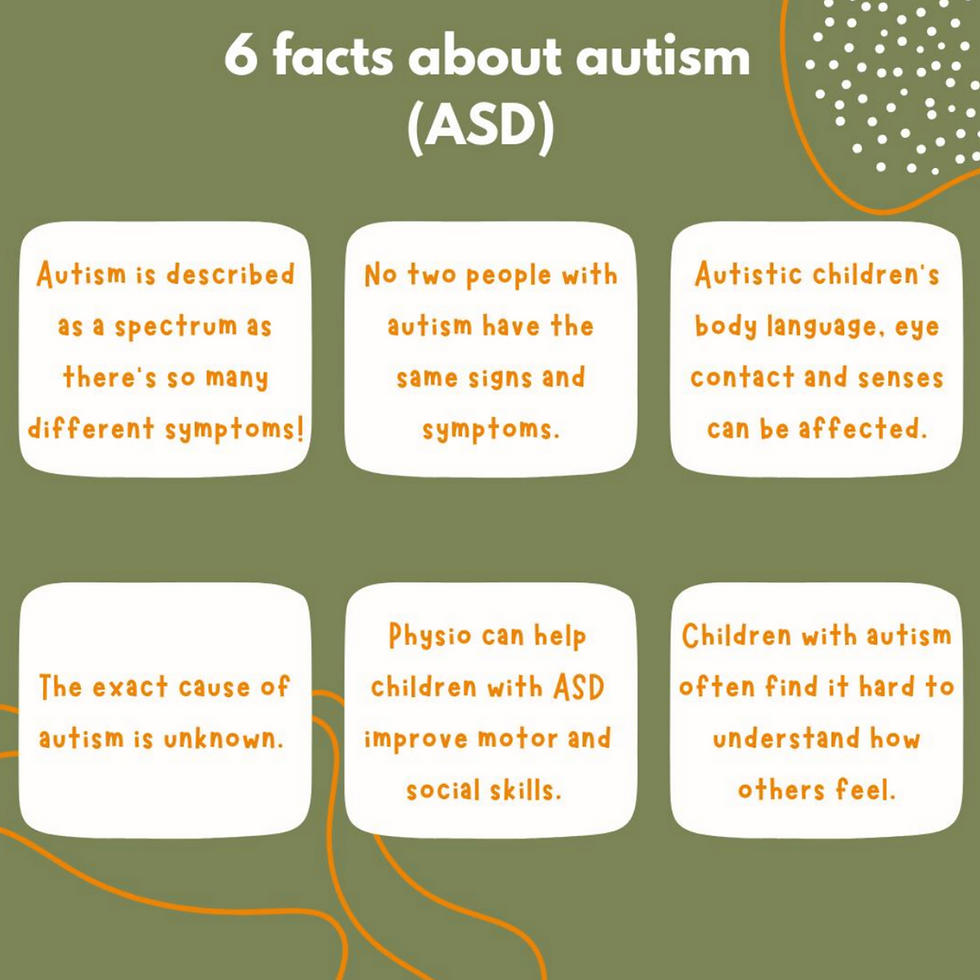6 Facts on Autism to Help Spread Awareness
- Katie Michaels

- Jun 25
- 2 min read
Helping families grow understanding, spark conversations, and promote kindness.
At Moti Me, we believe every child deserves to feel seen, supported, and included. 🌟
Autism can look different for every individual, and understanding that is the first step to building a more inclusive world.

Here are 6 simple but important facts about autism that can help us all better understand and support children with Autism Spectrum Disorder (ASD):
1. Autism is described as a spectrum 🌈
Autism is often called a "spectrum" because it can affect people in so many different ways. Some children may need a lot of support in daily life, while others may be more independent. There's no one-size-fits-all experience with autism — and that's part of what makes every child so unique.
2. No two people with autism have the same symptoms 🧩
Every autistic child has their own strengths, challenges, and ways of interacting with the world. One child might be highly sensitive to sounds, while another might have strong memory skills or deep focus in specific areas. Understanding this helps us move away from assumptions and towards real support.
3. Body language, eye contact, and sensory experiences can be affected 👀👂
Some autistic children may find it uncomfortable to make eye contact or may not express emotions through typical facial expressions or body language. Others may react strongly to certain sounds, lights, textures, or even smells. It’s not a choice — it’s how their brain processes the world.
4. The exact cause of autism is still unknown 🔬
While researchers have found links to genetics and brain development, the exact cause of autism remains unknown. What we do know is that autism is not caused by parenting styles or vaccines — and children with autism are not broken — they simply experience and process the world differently.
5. Physiotherapy can help autistic children 🏃♂️
Many people don’t realise that physiotherapy can be hugely beneficial for some children with autism. It can help improve things like balance, coordination, motor planning, and even social interaction during group movement activities. It’s one of the many ways we can support whole-body development.
6. Understanding emotions can be challenging 💬💛
Some autistic children may find it hard to recognise or interpret other people’s feelings — and sometimes even their own. This doesn’t mean they lack empathy. With the right support, they can learn and grow emotional awareness over time, especially in safe, accepting environments.

Why this matters 💭
Autism is part of human diversity. And when we create spaces that are more understanding, patient, and adaptable, we give every child the chance to thrive.
Let’s keep learning, listening, and spreading awareness — together 💙






